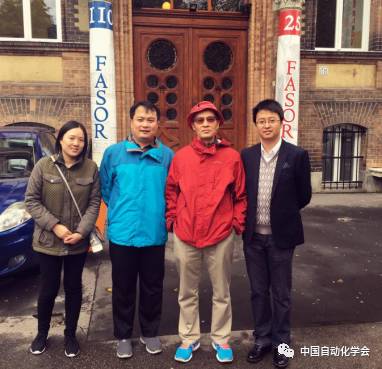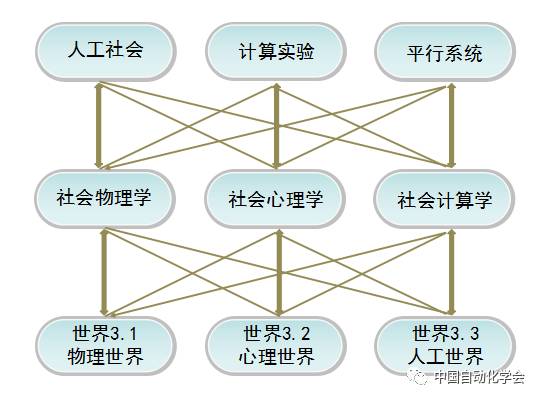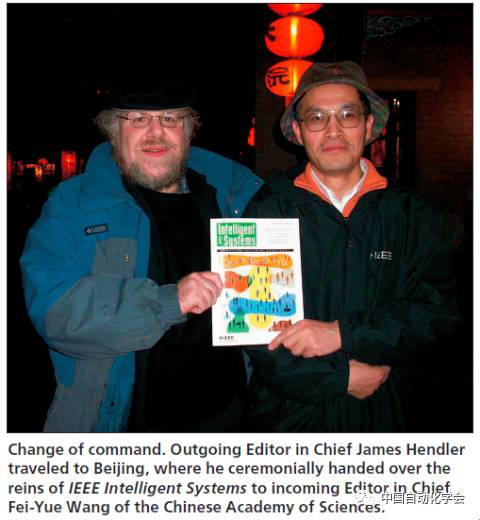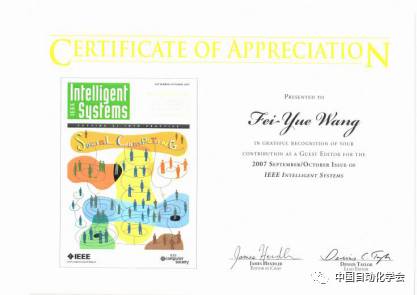近日,IEEE SMC正式批复同意成立“IEEE SMC社会计算与社会智能技术委员会(IEEE SMC Technical Committee on Social Computing and Social Intelligence)”,由中国自动化学会副理事长兼秘书长、中国科学院自动化研究所复杂系统管理与控制国家重点实验室主任王飞跃研究员担任首届技术委员会主席,RPI数据探索与应用研究所所所长James Hendler与丹佛大学电子与计算机工程系主任Kimon Valavanis共同担任联合主席,中科院自动化研究所复杂系统管理与控制国家重点实验室袁勇副研究员担任秘书长。同时,王飞跃研究员当选为2017年IEEE SMC BoG (Board of Governor)成员,是当前IEEE SMC协会BoG的唯一一位中国大陆学者,任期至2019年,这将进一步促进我会与IEEE SMC的深度合作与交流。
IEEE SMC协会全称为IEEE Systems, Man and Cybernetics Society (IEEE系统、人与控制论协会),其愿景是成为系统科学与工程、人机系统与控制论的理论与应用领域世界领先的国际学术组织。在2014年时,王飞跃研究员便因其在复杂系统的智能控制与管理方面的开拓性贡献和杰出成就,于纪念“控制论之父”诺伯特·维纳诞辰120周年时获得IEEE SMC 诺伯特·维纳奖。成为大陆首位获此殊荣的学者。

王飞跃研究员携团队青年学者共同参加2016 SMC Conference,于会上提议成立IEEE SMC Technical Committee on Social Computing and Social Intelligence。图片拍摄与布达佩斯,冯诺依曼就读的高中。
此次由王飞跃研究员带头提议并成立“IEEE SMC社会计算与社会智能技术委员会”,一方面是感受到国内外学者对社会计算作为一个独立的交叉学科的需求日趋迫切;另一方面是当前复杂系统由CPS向CPSS的范式转移引发了极大的社会复杂性,许多传统的研究方法已然无法发挥有效作用,必须联合国内外各领域的广大优秀学者,共同推动围绕因现代信息技术引起的社会、经济与工程系统的复杂性问题展开研究。

基于ACP(人工社会、计算实验与平行系统,Artificial Societies, Computational Intelligence, Parallel Execution)的社会计算基本研究框架
我国学者在社会计算领域的研究工作起步较早,率先在国际上倡导并推动了社会计算学科的发展。2004年,中国科学院自动化研究所王飞跃研究员在《科学时报》上首次提出“计算社会学”的概念;2007年,王飞跃研究员等学者在人工智能领域顶级杂志《IEEE Intelligent Systems》上联合撰文明确了“社会计算”的内涵,给出其从“社会信息”到“社会智能”的基本研究框架,并得到了国内外学者的广泛引用;2008年中国科学院继续设立知识创新重大项目“情报与安全信息学和社会计算的基础理论及原型系统”项目,支持相关理论方法研究和系统研发;天津大学则在国家自然科学基金委和教育部资助下开展了针对复杂社会经济系统的计算实验研究;浙江大学计算机学院和社会科学基础研究平台也分别成立了面向社会计算的交叉学科研究队伍;2011年中国人民大学启动了中国人民大学重大基础研究计划项目“社会计算”,主要研究社会计算的若干基础问题。


2008年冬,时任《IEEE Intelligent Systems》主编的James Hendler 教授受侯任主编王飞跃研究员邀请来到北京,部署主编交接工作。左图为Hendler教授将《IEEE Intelligent Systems》杂志交于王飞跃研究员手中,该期杂志主题恰为“Social Computing”。王飞跃研究员因为对“Social Computing”当期杂志的突出贡献,受杂志颁发贡献证书,如下图所示。
2012年,在中国科学院研究生院(即今天的中国科学院大学,简称国科大)的大力支持下,社会计算成为跨“控制科学与工程”、“计算机科学与技术”、“管理科学与工程”三个一级学科的交叉学科(学科代码“99J2”),拥有博士和硕士学位授予权,学位培养工作依托国科大和中科院自动化所展开。
IEEE SMC社会计算与社会智能技术委员会的成立,为“社会计算”、“计算社会学”以及“社会智能”等相关领域学者提供了新的学术交流与探讨平台,专委会的研究方向包括但不限于:
Fundamentals of social computing and social intelligence
Modeling of social behavior
Social network analysis and mining
Big social media data
Social media infrastructure and cloud computing
Computational models of social simulation
Web 2.0 and semantic web
Innovative HCI and touch-screen models
Modelling of social conventions and social contexts
Social cognition and social intelligence
Social media analytics and intelligence
Group formation and evolution
Security, privacy, trust, risk and cryptography in social contexts
Social system design and architectures
Information retrieval, data mining, artificial intelligence and agent-based technology
Group interaction, collaboration, representation and profiling
Handheld/mobile social computing
Service science and service oriented interaction design
Cultural patterns and representation
Emotional intelligence, opinion representation, influence process
Mobile commerce, handheld commerce and e-markets
Social policy and government management
Social blog, micro-blog, public blog, internet forum
Business social software systems
Impact on peoples activities in complex and dynamic environments
Collaborative filtering, mining and prediction
Social computing applications and case studies
Knowledge Management and Automation
Blockchain and Distributed Artificial Intelligence
Applications of Social Computing for Power and Energy Systems, Smart Grid and Energy Internet
Applications of Social Computing in Unmanned Systems
Applications of Social Computing in Advanced Controls